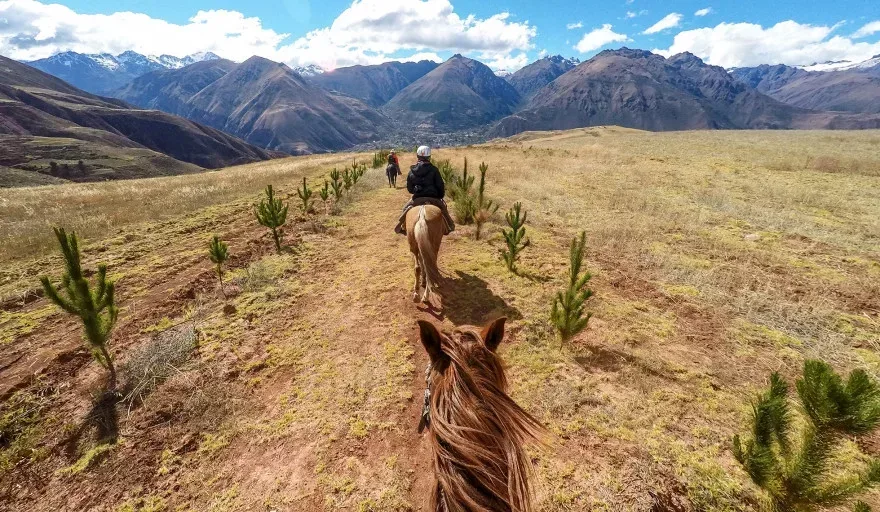Tourism is a growing sector in many African countries.
According to the Latitude Hotels Group’s 2019 CSR Report, in 2018 tourism was the highest foreign exchange earner in Uganda, representing 18.5 percent of the total export. Meanwhile, in Zambia it was the fastest growing economic sector – according to the World Travel and Tourism Council, international visitor spend represented seven percent of the country’s export total.
“Tourism in Africa enjoys continuous growth, partly made possible by prevailing peace conditions in many countries, air accessibility and diversity of attractions supporting investments,” commented Judy Kepher-Gona, Executive Director of Sustainable Travel & Tourism Agenda. For example, 2020 will see several new direct flight routes opening up between Africa and the US, such as Rwanda Air’s direct flight from New York to Kigali.
However, Kepher-Gona stresses the importance of taking community wellbeing and sustainable development into account when expanding tourism provision. It will also be important for Africa to harness global tourism trends to keep on pulling in the crowds.
One such global trend is ‘transformational travel’ – a desire for meaningful connections with people, wildlife and the environment while travelling. According to Sherwin Banda, President of African Travel Inc., Africa is well-placed to deliver such experiences. “African Travel focuses on making sure every trip has a positive impact, whether it’s engaging with wildlife through an elephant rehabilitation programme, tracking gorillas responsibly in Rwanda or Uganda, or trailblazing new experiences for travellers to engage with people and wildlife,” he said.
Africa is also well-placed to capitalise on a recent global interest in walking holidays, which are an environmentally friendly way of discovering a country. According to tourism insiders, more active safari experiences will be trending in 2020.
“Tourists are moving away from being sedentary, only sitting in a game vehicle, watching, seeing. They also want an immersive and interactive program where they can meet local communities and learn about their culture,” said Murray Gardiner, CEO at Giltedge Africa.
Walking safaris in Kenya and Uganda will be increasingly popular in 2020, as will visiting more off-the-beaten track locations on active excursions, such as horseback riding.
Wellness travel will be a big trend in 2020, with many travellers interested in wellness experiences such as spa treatments and gourmet farm-to-table experiences.
Katie Blackstone, product manager for Africa at Travel Beyond, said: “historically, safari camps have been focused on the wildlife and the game drive experience, but well-known resort chains that specialize in wellness are beginning to invest in safari destinations, as well.
“The introduction of this style of safari accommodation may call to a different type of traveller as well as put pressure on other camps to offer more wellness-focused experiences.”
Karkloof Safari Villas, in South Africa’s KwaZulu Natal Province, is both a safari experience and wellness retreat. Days spent there consist of game drives balanced out with yoga classes, waterfall excursions and spa treatments.
But not all tourists visit Africa just to experience its breathtaking landscapes. There has also been an increased interest in African city breaks. In 2018, for example, Johannesburg attracted 4.05 million international overnight visitors, making it Africa’s most popular destination city.
“Whereas a few years ago we would expect, in the main, to take overnight bookings, today’s visitor to Joburg typically spends two to three nights with us, booking an array of activities – whether their ‘thing’ is food, art, culture or history,” said Rinse Wassenaar, Marketing Manager for the Morukuru Family, which has a property, AtholPlace Hotel & Villa, in the city’s suburbs.
This points to a rise in ‘bleisure’ travellers visiting the continent. These are business travellers who wish to combine attending a conference or business meeting with a few days of sightseeing, getting to know the city or nearby surroundings. According to a study commissioned by the German Travel Association in 2018, 18-34-year-olds now comprise the largest segment of business travellers – around 48 percent of millennials regularly extend their business trips for leisure. They expect more from the MICE industry than ever before, including innovative takes on local cuisine and authentic cultural experiences alongside state-of-the-art conference facilities.
One African company in particular is set to harness the growing bleisure trend. The Latitude Hotel Group is a boutique hospitality brand, which strives to facilitate integration between local communities and international business travellers. Its hotel Latitude 15 ͦ, in Lusaka, gives traditional African craftmanship a cosmopolitan twist with its interior décor. Hotel guests can access its private members club, Open Space, which hosts a series of music, cultural and business events, as well as housing The Works, a contemporary co-working space for business travellers to use.
According to industry experts, the future of tourism in Africa looks bright. The continent has all the right ingredients to capitalise on current trends: luxury accommodation, stunning wilderness areas and plenty of ecotourism and wellness initiatives to engage millennial travellers.


























